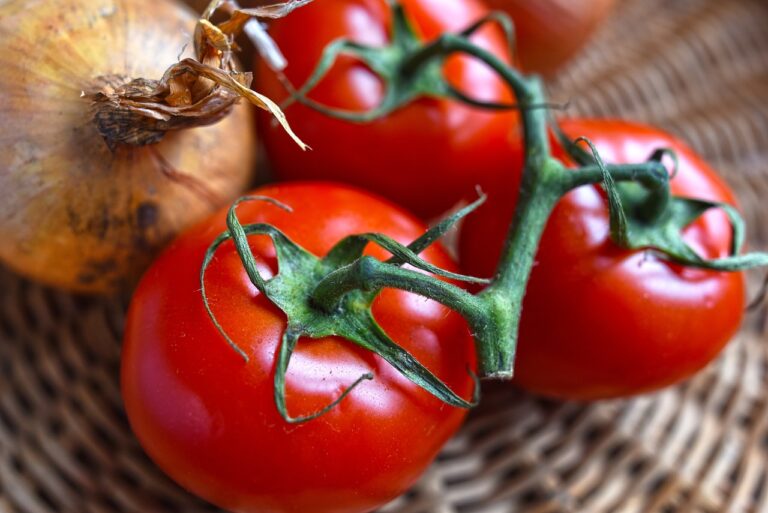The Role of Sustainability in Craft Distilling: Eco-Friendly Practices from Grain to Glass
11xplay sign up, king567 create account, skyinplay agent login:Craft distilling has been gaining popularity in recent years, as more and more consumers are looking for unique and high-quality spirits. While the focus is often on the flavors and techniques used in crafting these spirits, one aspect that is becoming increasingly important in the industry is sustainability.
Sustainability in craft distilling refers to the practices and processes that distilleries use to minimize their environmental impact and promote social responsibility. From sourcing ingredients to packaging and distribution, there are many ways that distilleries can incorporate eco-friendly practices into their operations.
In this article, we will explore the role of sustainability in craft distilling and highlight some of the eco-friendly practices that distilleries are adopting from grain to glass.
Sourcing Ingredients Sustainably
One of the most important ways that craft distilleries can promote sustainability is by sourcing their ingredients in a responsible manner. This includes using locally sourced grains and botanicals whenever possible, as well as seeking out organic and non-GMO ingredients.
By sourcing ingredients locally, distilleries can reduce their carbon footprint by minimizing the distance that raw materials need to travel. This not only supports local farmers and businesses but also helps to preserve the environment by reducing the use of fossil fuels in transportation.
Additionally, choosing organic and non-GMO ingredients helps to protect the environment by reducing the use of harmful pesticides and fertilizers. These chemicals can have a negative impact on soil and water quality, as well as the health of farm workers and surrounding communities.
Reducing Water Usage
Water is a critical component in the distillation process, as it is used to both mash grains and cool the distillate. However, the distilling industry is known for being a heavy water consumer, which can put a strain on local water resources.
To address this issue, many craft distilleries are implementing water conservation measures in their operations. This can include recycling and reusing water wherever possible, as well as investing in water-saving technologies such as closed-loop systems and energy-efficient equipment.
By reducing their water usage, distilleries can not only lower their environmental impact but also save on utility costs in the long run. This benefits both the distillery and the surrounding community by helping to preserve and protect local water sources.
Energy Efficiency
In addition to water usage, energy consumption is another key area where distilleries can improve their sustainability practices. The distillation process requires a significant amount of energy, from heating the mash to running stills and cooling the distillate.
To reduce their energy consumption, many craft distilleries are investing in energy-efficient equipment and technologies. This can include installing solar panels to generate renewable energy, as well as upgrading to high-efficiency boilers and distillation equipment.
By implementing these measures, distilleries can lower their carbon footprint and reduce their reliance on fossil fuels. This not only benefits the environment but also helps to future-proof the business by insulating it against rising energy costs and regulatory changes.
Packaging and Distribution
Once the spirits have been distilled, the next step is packaging and distribution. This is another area where distilleries can incorporate sustainability into their operations by choosing eco-friendly packaging materials and logistics practices.
Many craft distilleries are opting for recycled or biodegradable packaging materials, such as glass bottles made from recycled glass or compostable labels and closures. In addition, some distilleries are experimenting with innovative packaging solutions, such as refillable bottles or bulk dispensing systems, to reduce waste.
When it comes to distribution, distilleries can also make a difference by optimizing their supply chain and transportation practices. This can include consolidating shipments, using eco-friendly packaging materials, and partnering with sustainable carriers to minimize their carbon footprint.
Community Engagement
Lastly, sustainability in craft distilling goes beyond just environmental practices it also includes social responsibility and community engagement. Distilleries can support their local communities by sourcing ingredients from local farmers, partnering with local businesses, and giving back through charitable initiatives.
Many craft distilleries are also involved in educational and outreach programs to raise awareness about sustainability and responsible consumption. This can include hosting tours and tastings, offering workshops and classes, and participating in community events and festivals.
By engaging with their community in a meaningful way, distilleries can build trust and loyalty among consumers, while also making a positive impact on the local economy and environment. This holistic approach to sustainability helps to create a more resilient and vibrant distilling industry for the future.
FAQs
Q: What is sustainability in craft distilling?
A: Sustainability in craft distilling refers to the practices and processes that distilleries use to minimize their environmental impact and promote social responsibility. This includes sourcing ingredients sustainably, reducing water and energy usage, using eco-friendly packaging, and engaging with the community in a positive way.
Q: Why is sustainability important in craft distilling?
A: Sustainability is important in craft distilling to reduce the industry’s environmental footprint, support local communities, and promote responsible consumption. By adopting eco-friendly practices, distilleries can contribute to a healthier planet and a more sustainable future for the industry.
Q: How can I support sustainable distilleries?
A: You can support sustainable distilleries by choosing to purchase spirits from distilleries that prioritize sustainability in their operations. Look for labels or certifications that indicate a commitment to sustainability, and consider supporting local distilleries that source ingredients locally and engage with their community in a positive way.
In conclusion, sustainability plays a crucial role in the craft distilling industry, from sourcing ingredients to packaging and distribution. By adopting eco-friendly practices and engaging with their communities, distilleries can build a more sustainable and resilient industry for the future. Cheers to a more sustainable spirit!







